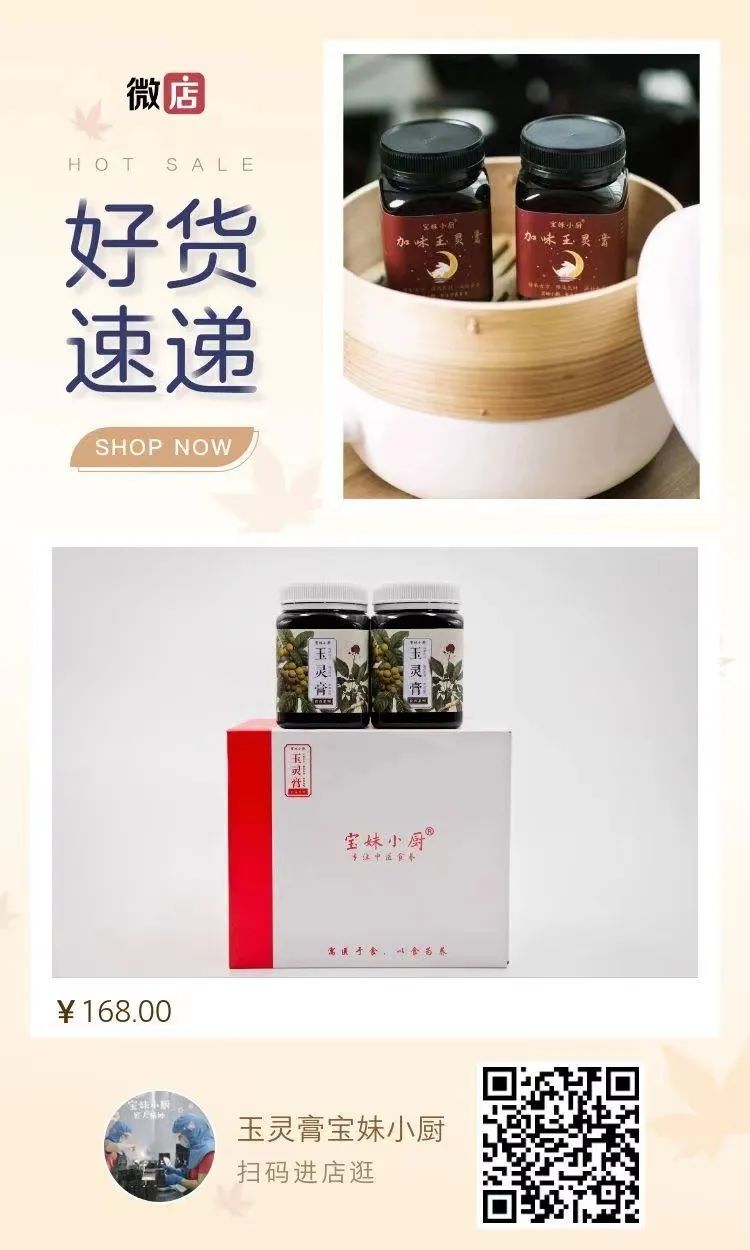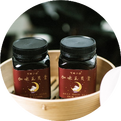
Yin deficiency constitution refers to the insufficient presence of substances that govern stillness and moisture within the body.If we compare a person to a functioning machine, Yin acts as the lubricant and coolant. When there is a lack of lubricant, the machine will overheat; similarly, if the body lacks Yin, it will enter a state of false heat and hyperactivity.According to the principle of mutual restraint between Yin and Yang, any deficiency in either side will inevitably lead to an excess in the other.Individuals with Yin deficiency have insufficient Yin fluids, which cannot nourish the organs, leading to an inability to restrain Yang, resulting inrelative hyperactivity of Yang Qi and the generation of internal heat, manifesting as symptoms of false heat, commonly referred to as “excess heat”.The essence, blood, fluids, and other substances in the body belong to Yin, which can nourish and moisten the organs while restraining Yang heat.Many friends ask whether individuals with Yin deficiency can consume Yu Ling Gao (Jade Spirit Paste). Those with Yin deficiency need to replenish Yin, and blood is the greatest source of Yin. The primary function of Yu Ling Gao is to nourish blood and Qi. Therefore,Yindeficient individuals are very suitable for consuming Yu Ling Gao, as replenishing blood will significantly improve the condition of Yin deficiency.
Understanding Yin Deficiency Constitution
Let’s briefly understand Yin deficiency constitution and its regulation methods.
Individuals with Yin deficiency are generally thin, as their bodily functions are in a state of hyperactivity, leading to significant consumption;
they often have a flushed complexion, which is a manifestation of false heat rising;their skin tends to be dry due to insufficient internal moisture;they may experience dry mouth and throat, craving cool beverages;they often feel“five hearts heat” (the five hearts refer to the palms and soles of the feet and the heart);they may also experience dry stools, yellow and scanty urine.Yin deficient individuals are prone to irritability, especially in summer when heart Yin is particularly likely to be insufficient, leading many to become especially irritable.If we differentiate further, Yin deficiency can manifest in different organs:

•Lung Yin Deficiency:often accompanied by dry cough with little phlegm, tidal fever, and night sweats;
• Heart Yin Deficiency can lead to palpitations, forgetfulness, and insomnia with vivid dreams;
•Kidney Yin Deficiency may result in lower back pain, weakness in the knees, dizziness, tinnitus, increased sexual desire in men, nocturnal emissions, and scanty menstruation in women;
• Liver Yin Deficiency can lead to irritability, anger, rib pain, and blurred vision;
• Spleen Yin Deficiency may cause dry stools, increased appetite, but weak digestion.
Yin deficient individuals have insufficient Yin fluids, which cannot nourish the organs, leading torelative hyperactivity of Yang Qi and the generation of internal heat, manifesting as symptoms of false heat, commonly referred to as “excess heat”.
Individuals with Yin deficiency constitution find it challenging to cope in spring and summer.
In spring, as the liver wood sprouts, similar to flowers and trees, the body requires more Yin fluids, making it very easy for those with Yin deficiency to experience phenomena of false heat and wind movement, such as oral ulcers, styes, and tonsillitis… In summer, the heat further damages Yin; during the hot summer, the body’s Yin is a precious resource that is easily harmed by external heat, leading to further Yin deficiency.

The Kidney is the Lesser Yin of Yin
“The Kidney governs water,” as the Kidney is the water organ, its primary function is to store essence and regulate fluids. The Huangdi Neijing states, “The Kidney is the Lesser Yin of Yin,”with Kidney Yin based on the essence and Qi within the Kidney, nourishing and moistening the organs, and working in conjunction withKidney Yang,forming the foundation of life activities in the body.When Kidney Yin is sufficient, all Yin in the body is abundant; when Kidney Yin declines, all Yin in the body declines; when Kidney Yin is lost, all Yin in the body is lost, and life ceases.In China, Liu Wei Di Huang Wan (Six-Ingredient Rehmannia Pill) is well-known as a representative medicinal formula for nourishing Kidney Yin. Liu Wei Di Huang Wan is a comprehensive formula suitable for individuals with Kidney Yin deficiency, presenting symptoms such as a red tongue, thin coating, lower back and knee weakness, dizziness, tinnitus, night sweats, and spontaneous sweating.As people age, Yin fluids are continuously consumed, and most individuals will experience some symptoms of Yin deficiency. When discomfort arises, Liu Wei Di Huang Wan can be used for regulation.It is important to note that:Liu Wei Di Huang Wan is not suitable for those with damp-heat, Yang deficiency, weak spleen and stomach function, or a slow pulse.The formation of constitution is partly innate and partly due to long-term lifestyle habits. Regardless of how biased the constitution may be, through postnatal adjustments in lifestyle habits, it can be regulated to a more balanced state.Thus,the regulation of constitution ultimately needs to be reflected in daily life to bring about true change.
Methods for Regulating Yin Deficiency
Individuals with Yin deficiency constitution can regulate their condition in daily life as follows:
🍏Consume more Yin-nourishing foods:
Traditional Chinese Medicine holds that among meats, pork and duck are Yin-nourishing, but they should be prepared lightly without excessive seasoning, or they may become heat-inducing.
Common Yin-nourishing foods include: yam, lotus root, white fungus, lily bulb, snow pear, and sugarcane.
In Chinese herbal medicine, Shu Di (Rehmannia Root), Shan Yao (Chinese Yam), Sheng Di (Raw Rehmannia), Sha Shen (Glehnia Root), Mai Dong (Ophiopogon), Yu Zhu (Polygonatum), Gou Qi Zi (Goji Berries), Shi Hu (Dendrobium), Nu Zhen Zi (Ligustrum), and Sang Shen (Mulberry) are all Yin-nourishing. Among these, Shu Di, Shan Yao, and Gou Qi Zi nourish Kidney essence, and when combined with Yin-nourishing herbs, the effect is enhanced, making them suitable for soups.
We previously introduced a cooling and Yin-nourishing soup—Lotus Root and Sheng Di Pork Soup (click to read), which is suitable for individuals with Yin deficiency to consume regularly.
In addition to consuming more Yin-nourishing foods, it is also important to note to limit spicy and heavily flavored foods, as these require more Yin fluids to neutralize, which can exacerbate the existing Yin deficiency.
🍏Avoid activities that cause excessive sweatingSince sweat and blood share the same source, sweating reduces the Yin fluids in the body; therefore, individuals with Yin deficiency should avoid excessive sweating and choose gentler activities, while activities like sauna are also not suitable.🍏Avoid going out during peak sunlightIndividuals with Yin deficiency constitution find it most uncomfortable in spring and summer, as spring requires more Yin fluids due to the liver wood sprouting, while summer corresponds to fire, and noon corresponds to the heart, which adds heat to heat. Therefore, those with insufficient heart Yin will feel very uncomfortable in such an environment, potentially leading to sudden illnesses. Thus, avoiding going out during peak sunlight is crucial.🍏Go to bed early and avoid staying up lateWhat is consumed during late nights? It is the oil within our body, which is Yin; thus, those who often stay up late become particularly prone to excess heat. Of course, staying up late harms both Yin and Yang, as nighttime is when Yang Qi gathers; not sleeping prevents Yang Qi from returning, leading to an inability to generate normally the next day.🍏Maintain a calm and relaxed mood, avoiding impulsiveness and worriesIndividuals with Yin deficiency are already prone to internal heat, and when the weather heats up, they are more likely to feel hot and irritable. They may become impulsive and angry, which can easily put stress on the body, especially in the elderly, leading to cardiovascular issues.Therefore, especially during hot weather, it is essential to maintain a tranquil and relaxed mood, to ease the mind and not be easily affected by the weather or other external environments, allowing for inner peace.

Recent Articles:
* Spring is not the season for eating meat; there is one type of meat to eat less of
* All problems of good friends can be traced back to these two points
* Two images clarify the issue of excess heat
* In spring, should we eat sweet? Sour? Spicy? Whose advice should we follow?


